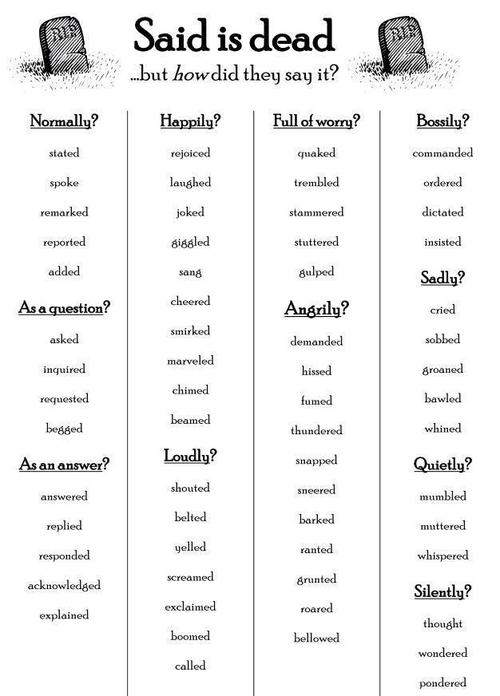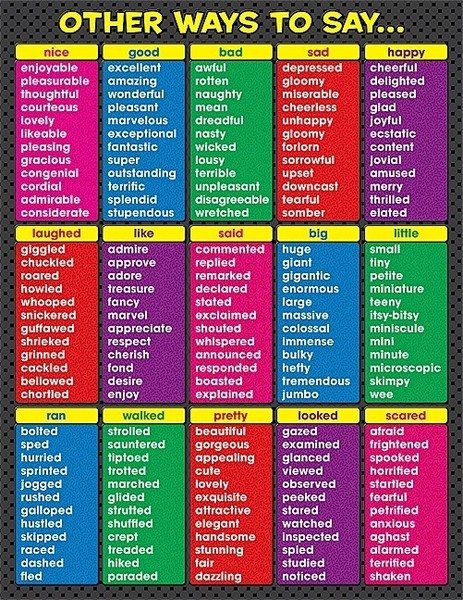Improve Student Vocabulary: 600 Other Ways to Say Common Things
Your students are bright, but they don’t always sound like it.
Their writing is full of cliche and emaciated language that doesn’t reflect their inner voice, nor does it indicate their vocabulary level.
You want your students to use specific language that demonstrates the intended meaning rather than the first word that popped into their head, but you want to do more than hand them a thesaurus and tell them to “figure it out.”
We suggest that you start with using more specific verbs and adjectives for commonly used words like ‘said,’ ‘went,’ and ‘nice.’ Consider alternatives to ‘dead’ words, like ‘very,’ ‘really,’ and ‘so.’ Instead of ‘very kind,’ how about ‘generous’ or ‘altruistic’?
There are many approaches you can take to improve student vocabulary — these 600 other ways to say common things should give you a head start. While the following graphics aren’t going to magically transform your students into articulate wordsmiths, they can certainly play a role if posted to your classroom blog, shared on a student-teacher pinterest page, hung on a classroom wall, or reformatted, printed, hole-punched, and stored in a student writing journal or binder.
In student writing, it is essential to vary the attributive verbs or dialogue tags to make the conversations more engaging and avoid repetitive use of the word “said.” Here are some alternatives to consider:
Alternatives To The Word, ‘Said’ In Student Writing
Replied: Used to indicate a direct response to someone’s statement.
Example: “I can’t believe we lost the game,” he replied.
Whispered: Suggests speaking in a hushed or soft tone.
Example: “I have a secret,” she whispered.
Shouted: Indicates speaking loudly or forcefully.
Example: “Look out!” he shouted.
Exclaimed: Conveys a sudden or intense expression.
Example: “I won the lottery!” she exclaimed.
Mumbled: Implies speaking indistinctly or quietly.
Example: “I’m not sure,” he mumbled.
Interjected: Used to interrupt or inject a comment.
Example: “That’s not true,” she interjected.
Suggested: Implies offering an idea or proposal.
Example: “Why don’t we try a different approach?” he suggested.
Inquired: Indicates asking a question or seeking information.
Example: “What time does the movie start?” she inquired.
Muttered: Suggests speaking in a low voice, often in discontent.
Example: “This is so frustrating,” he muttered.
Repeated: Conveys saying something again or reiterating.
Example: “I told you not to do that,” she repeated.
More Alternatives To Saying ‘Said’ In Student Writing [Attribution]

Other Ways To Say: Nice, Good, Bad, Sad, Happy, Laughed, Like, Big, Little, Ran, Walked, Pretty, Looked, and Scared [Attribution forthcoming]

Other Ways To Say, ‘Went’: attribution ‘Write At Home’ .com

